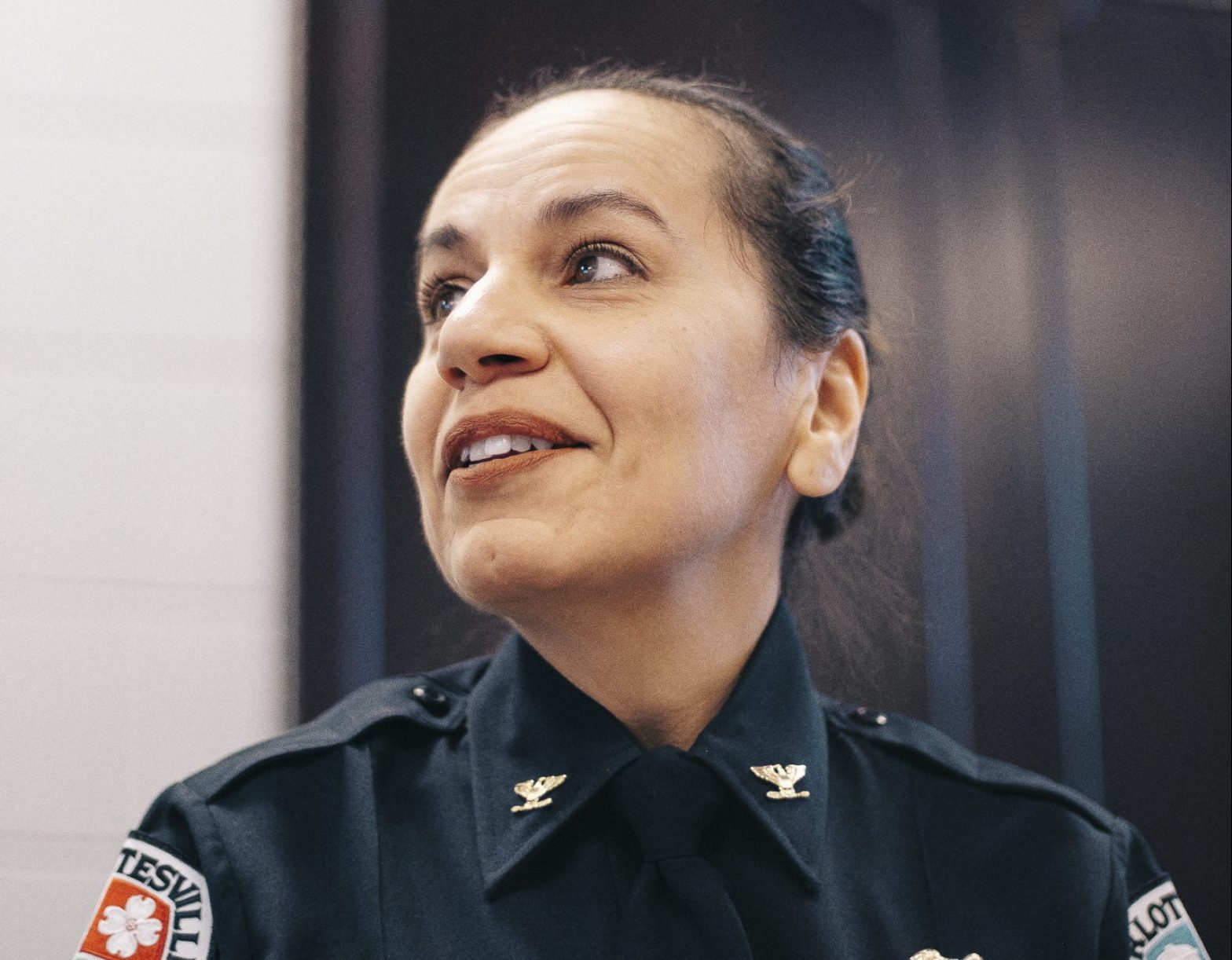After firing former Charlottesville police chief RaShall Brackney last year, the City of Charlottesville has finally begun looking for her replacement. In July, it paid D.C. executive search firm POLIHIRE $35,000 to assist interim City Manager Michael Rogers with recruitment, interviews, and other aspects of the selection process. The firm launched an online survey August 2 asking community members what they would like to see in the next chief, and the survey’s results will be used to create a recruitment profile.
However, some community members are concerned that certain populations—those that lack access to adequate internet, or a computer—were unable to take the online survey or didn’t know about it at all, particularly people experiencing homelessness, elderly folks, youth, illiterate people, and low-income residents.
“You got a lot of the elders that are asking what’s going on with the search for the new police chief, and I’m like, ‘They want it online,’ and they’re like, ‘Online? I can’t do it online!’” says local activist Rosia Parker. “I don’t have Wi-Fi where I can take my computer out in the community and sit and ask them these questions.”
Echoing concerns she’s heard from other Black residents, Parker is increasingly worried that the outreach process will leave out Black and brown residents, when the city should be seeking the most input from communities who’ve been disproportionately harmed by police.
The survey, which closed on August 22, first asked respondents if they were a Charlottesville resident, student, city business owner, employed within the city, or living in a neighboring jurisdiction, requiring city residents to specify which neighborhood they live in.
Respondents selected what they consider the most important public safety issues in the city: not enough police presence, trust of the police, improved police response times, more personal connections with police officers in their neighborhood, access to crime data, drugs, vandalism, burglaries/theft, violent crime, or other. They then chose what the top focuses should be for the next chief: more police presence, accountability for actions, agency that is professional, foster awareness and respect for cultural differences, or other.
Respondents also identified what leadership qualities—including diversity, community concern, integrity, and communication—and what type of experience they think the next chief should have—including a track record of building and maintaining community relationships, and anti-racist policing policies—as well as shared how satisfied they were with the relationship between Charlottesville police and the community. Lastly, the survey asked respondents to give “one piece of advice” to the future police chief.
Reading the first few questions upset local activist Katrina Turner, deterring her from completing the survey. “These are things that the community has been asking for for a long time. They’re paying someone to ask the questions that we’ve been asking,” she says.
Sarah Burke, who served on the initial Police Civilian Review Board, also thinks the questions did not feel tailored to Charlottesville’s needs, and were “skewed towards the assumption that more policing improves public safety.”
Besides an improved online survey, Parker, Turner, and Burke think POLIHIRE should have created a paper survey, in addition to sending outreach workers into the city’s neighborhoods. The city also could have sent the surveys along with utility bills in the mail, and installed drop-off boxes in different neighborhoods, suggests Parker.
As the police chief search continues, the activists urge POLIHIRE to host multiple in-person engagement events with community leaders. “They need to be out in the community talking to the people, because they will never know what we truly want unless they talk to us,” says Turner.
When asked about the accessibility concerns surrounding the online survey and community outreach, Mayor Lloyd Snook said in an email that although he has not personally been involved in the police chief search, he has “confidence that the process will include lots of community input at the outset, application of that input to the winnowing process, an opportunity for a diverse set of viewpoints during that winnowing process, and an opportunity for the finalists to be presented to the public before the decision is made.”
City Councilor Michael Payne said in an email that the outreach process will specifically include one-on-one meetings “with stakeholders and leaders from across the community,” as well as potentially “a focus group of stakeholders who could help vet finalist candidates. … Some of these meetings have already occurred, but they’re still being scheduled. If anyone has in mind a specific community group/individual they believe should be included, they can let City Council/the city manager’s office know [and] a meeting can be set up.”
Though the city hopes to select a new chief by November, “we’ll make the decision when we’re ready. … I don’t intend to rush the decision,” said Snook.
